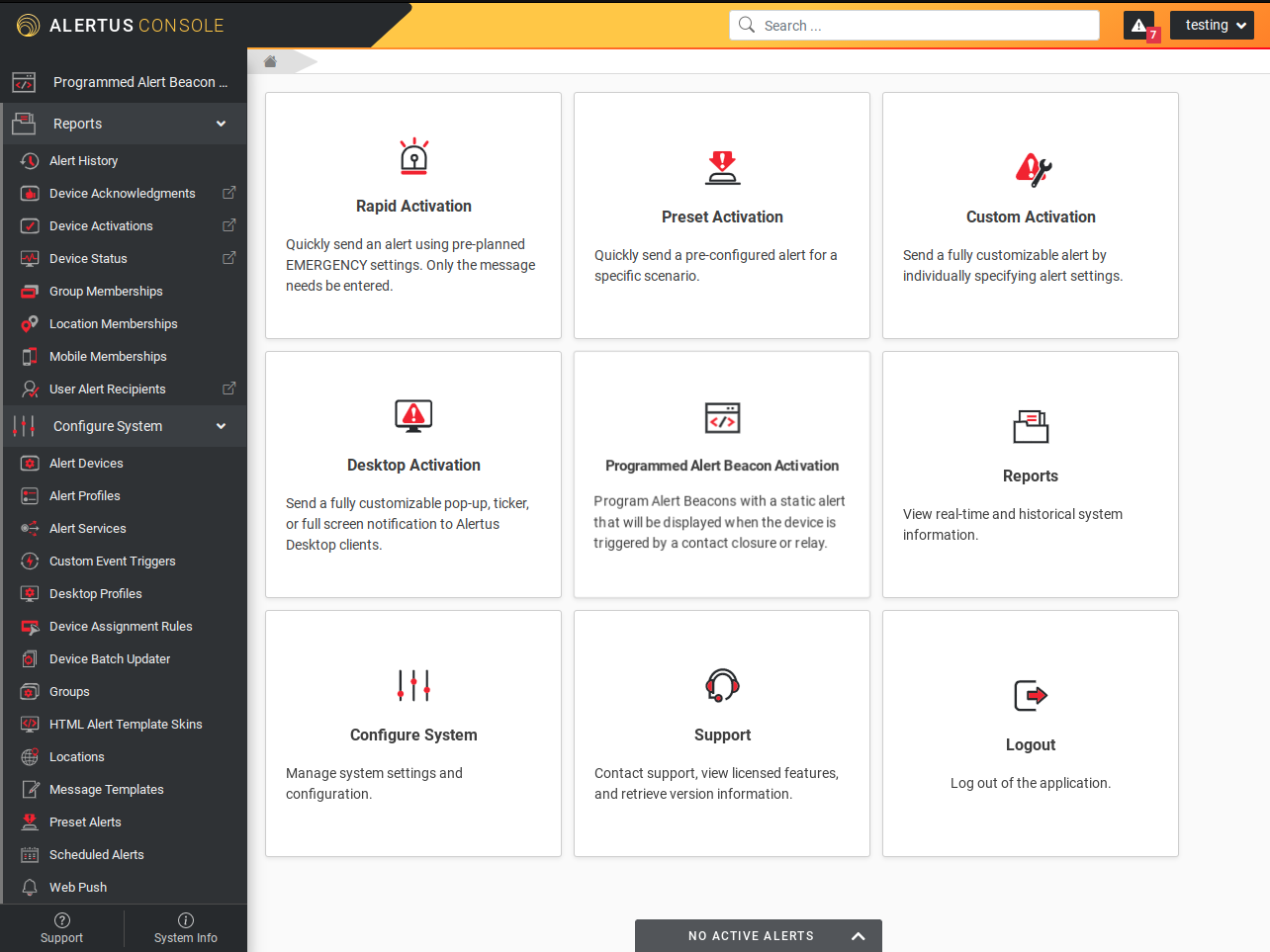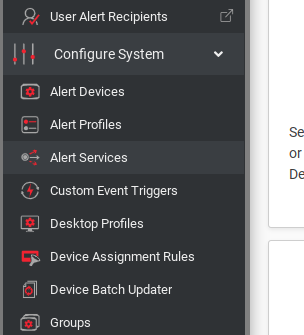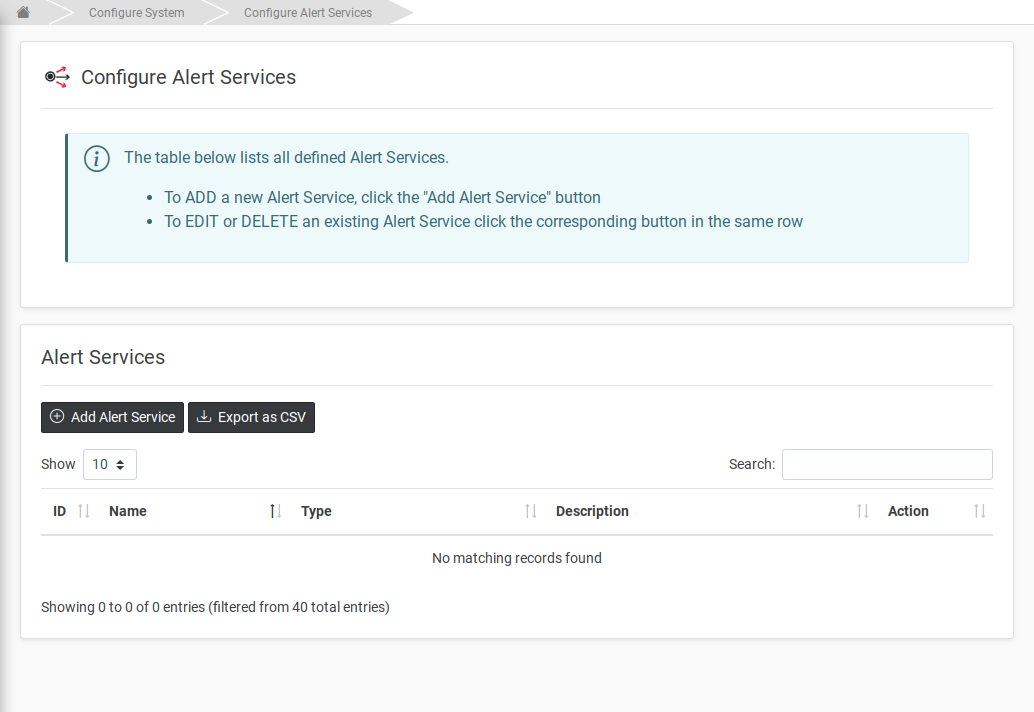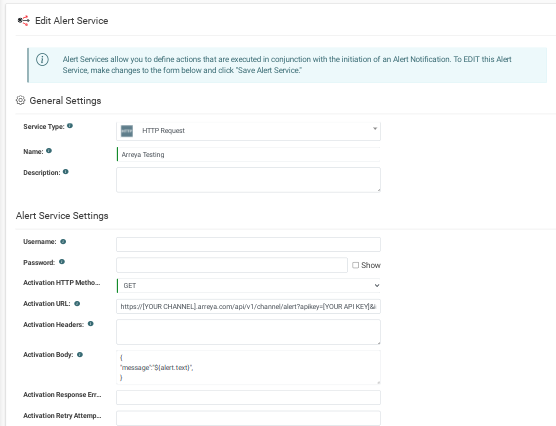Trigger Alert From HTTP Request
The HTTP Request Alert Service can be used to trigger an alert to override the content on your Arreya channel.
In your alertus console, navigate to Configure System then Alert Services.
Arreya recommends creating an Alert Service for each channel you wish to alert. You can add an alert service for each Alert Profile as well. Furthermore this enables you to change colors, icons and specific messaging for each Alert Profile.
Click the [Add Alert Service] button.
For the Service Type field, Select HTTP Request.
In the Name and Description field, name your alert profile and enter a description.
For the Activation HTTP Methods field, select GET or POST
In the Activation URL field, your URL can be built using the attributes defined in the Arreya API documentation under the Alert endpoint. Moreover attributes encoded as URL form data will be overwritten if redefined in the request body.
Example Activation URL:
| https://[YOUR CHANNEL].arreya.com/api/v1/channel/alert?apikey=[YOUR API KEY]&icon=exclamation-triangle&message=This%20is%20a%20test&background=red&color=white&title=ALERT%20TESTING& timeout=15&animation=wobble |
For the Activation Body field, you can override fields defined in the Activation URL field. For example if you wanted to override the message in the alert, with the alert text from Alertus, enter the following in the Activation Body field
| { "message":"${alert.text}", } |
A copy of available placeholder variables are available below.
| Variable | Description |
| ${alert.id} | Numerical ID of the Alertus Message |
| ${alert.clientName} | Name of the client application that sent the alert |
| ${alert.durationMillis} | Duration of the alert in milliseconds |
| ${alert.expirationDate} | Time the alert expires in MM/dd/yyyy hh:mm:ss a format. |
| ${alert.expirationDateUtc} | UTC time the alert expires in yyyy-MM-dd'T'HH:mm:ss'-00:00' format |
| ${alert.originId} | Unique identifier of the event that initiated the alert. For CAP alerts derived from CAP Alerts this is the CAP Identifier. |
| ${alert.sender} | Name of the person or system that sent the alert |
| ${alert.sentDate} | Time the alert was sent in MM/dd/yyyy hh:mm:ss a format. |
| ${alert.sentDateUtc} | UTC time the alert was sent in yyyy-MM-dd'T'HH:mm:ss'-00:00' format |
| ${alert.text} | Alert message text. |
More information regarding the HTTP Request Alert Service and additional fields can be found in your Alertus Documentation.
 Help Center
Help Center


